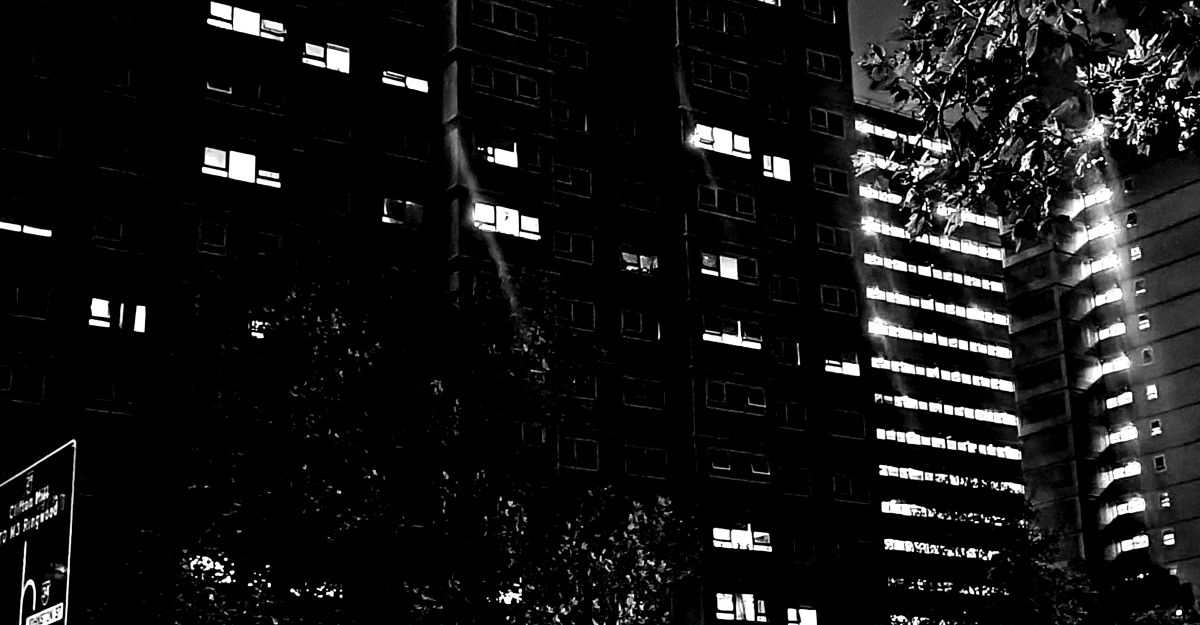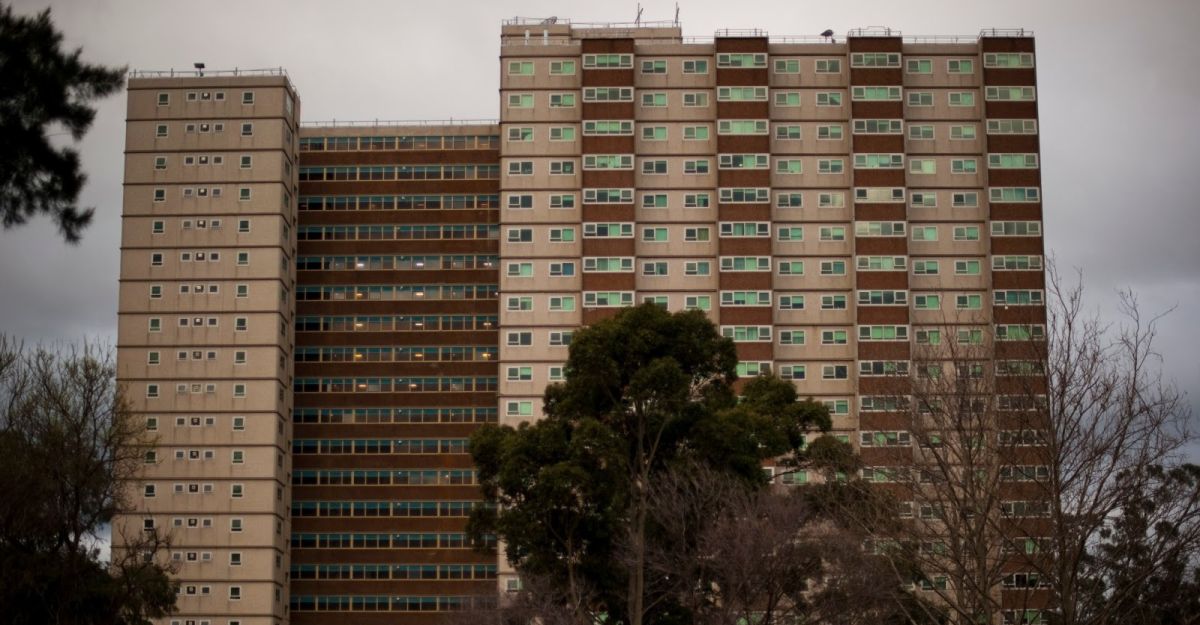During the early stages of the COVID-19 pandemic, 20,000 people in Australia pledged to withhold rent in a show of solidarity amongst those in precarious housing. Inspired by similar struggles overseas, the rent strike was quickly able to build networks of support for those under pressure from profit-driven landlords and real estate agents. Legislation that forced renters to negotiate individually with landlords and agents – laughably labelled in official discourse as a ‘partnership’ between property owners and those struggling to pay rent – has eroded the collectivity necessary to persist with the strike. However, the structural issues facing renters have obviously not gone away.
Via social media, phone and email, strike organisers continue to see daily instances of renters desperately needing support to negotiate with unscrupulous real estate agents. Many landlords and agents continue to exploit the pandemic to exercise their structural power over renters, a minority of whom have been able to negotiate reductions. Most have only achieved rent deferrals: come September, when the eviction moratorium ends, we are expecting a wave of evictions as the jobseeker and jobkeeper payments are wound back to an as yet unknown degree.
As the pandemic exacerbates the quotidian struggles of renters and people in precarious housing, it is increasingly clear that a militant collective response is required. Advocacy organisations have a proud tradition of providing advice and undertaking research, however their reliance on Victorian and Commonwealth government funding often leaves them legally and politically hamstrung. There are profound differences between an advocacy body governed by a board and funded by government and a union governed and funded by its members. Despite decades of advocacy, renters’ struggles remain socially marginal, with little scope for renters to self-represent, demonstrate collective power, and exert political force.
Out of the structures created via grassroots organising and solidarity during the rent strike, a fighting renters union is emerging in Victoria. The Renters and Housing Union (RAHU) is a member-run, rank-and-file union for renters and all people in precarious housing. We seek to defend Victorian renters from avaricious landlords and real estate agencies, to ensure all people have access to safe, secure and affordable housing, to keep the real estate lobby and private investors in check and to provide a voice for renters in collective negotiation with landlords, real estate agencies, and government.
As unionised renters, we can move beyond merely reacting to legislation; instead, we can use our collective strength for political interventions. We can shift dominant discourses by concrete action – as was evidenced during the rent strike – and a consistent media strategy. Further militant action, including eviction-defense campaigns, will likely be necessary in September. In the interim, RAHU intends to switch the cultural spotlight from renters to property investors and their agents by providing a resource for renters to review and share information on real estate agencies. A second wave of COVID-19 will only increase awareness of renters’ subordinate social position, and RAHU stands ready to accelerate the struggle for housing justice.
Along with these vital short- and medium-term goals, the longer-term project of highlighting how inequitable housing is in this country must be pursued. Even in discourse sympathetic to renters – which might highlight how casual workers and local students are locked out of the ‘housing market’ – there is little attention given to the often exploitative housing conditions faced by international students, migrant workers and many others living in economic precarity. More pertinently, whether housing should be a market at all is a question that seemed out of the realm of epistemic possibility in Australia prior to the pandemic. Renters’ urgent need for material support and the profit-seeking behaviour of property owners and their representatives has meant that this question can be posed.
Although the pandemic forced the Morrison government into a number of political decisions that on the surface seem ideologically incongruous – the eviction moratorium prominent among these – the temporary nature of these measures reinforces a business-as-usual approach to housing. Detail was sparse and slow to emerge as state governments were left to legislate the finer points, although the legislative priority given to commercial renters was a pretty clear indication of the priorities at a federal level. The moratorium ultimately entrenches a notion of ‘temporary housing security’, as if secure housing could only be provided under the most exceptional circumstances.
Renters are accustomed to being culturally derided in Australia, where those who don’t own a home are regarded with suspicion. Bolstered by racism and paternalism, this derision was clearly evident in the Andrews’ government’s carceral response to the recent outbreak of COVID-19 in public housing towers in Melbourne; it also underpins the federal government’s ‘Home Builder’ grants, which top up the renovation budgets of those already planning home improvements – money that would undoubtedly be better spent addressing the chronic shortage of public housing instead.
In Traces of History, the late historian Patrick Wolfe shows how ‘the settler/Native confrontation’ is centered around ‘separate frameworks for allocating ownership’. Overwhelming state intervention in support of property investors, in the form of tax breaks and negative gearing, highlights a conscious effort to promote ownership at any cost. These policies are far from economically sensible but – as measures that enrich a landed settler elite – they serve to reinforce class boundaries and obscure both the structural violence of land acquisition and the struggles of many to afford anywhere to live at all.
Ideology and common sense are often opaque, structuring what it is possible to imagine in ways that can become manifest at certain times of rupture. COVID-19 has opened a point of resistance to the neoliberal housing market and unrestrained property investment – however, merely drawing attention to these issues is not enough. As part of what can only be an ongoing long term project of rebuilding genuine collectivity in this country – where 32 per cent of people rent, and 37 per cent of MPs own an investment property in addition to their own home – we must organise to contest the powerful interests of property investors, the real estate lobby and the media that ceaselessly delivers their side of the story. The Real Estate Institute of Australia (REIA), for example, is an influential lobby group for the interests of property owners and landlords: renters currently have no such body via which we ourselves can tell our side of the story, let alone agitate for meaningful political change.
The forces allied against us enjoy a vast structural advantage, as Australia’s housing market sustains a number of parasitic bodies – up to and including the banks – that ultimately live off renters’ labour. Our only hope are solidarity and collectivity. RAHU is one node in a suite of struggles that COVID-19 has made both more visible and more urgent. Our goals are not modest. It well past time for the power imbalance between property owners and renters to be addressed.
We demand, therefore:
1. An immediate and indefinite rent amnesty as long as the economic and health impacts of the pandemic continue.
2. An immediate 12-month eviction ban preceding an independent evaluation of social and legal outcomes.
3. Removal of Victoria Police from COVID-19 responses. The COVID-19 health crisis necessitates a healthcare and community driven response, not a carceral or military response.
4. All rental debts accrued due to the impacts of the pandemic are to be forgiven with no fault or penalty.
5. New and existing rent reduction agreements must be below 30% of tenants’ income and should persist for the length of the pandemic.
6. Rent reductions, not deferrals.
7. Renters in financial hardship who wish to break their lease shall recover their bond in full and have standard lease-breaking fees waived.
8. A transparent and proportionate punitive response to landlords, agents and agencies who refuse to negotiate with renters in good faith, breach their duties and violate renters’ rights.
9. The Victorian Government to decontaminate existing unoccupied dwellings, with these to be used for quarantine and isolation for all who are affected, including homeless and displaced people.
10. The State government to commit to improving and expanding public housing. An end to the private-sector community-housing rort.
We are committed to the cause of decolonisation through the acts of our organisation, including paying the rent to First Nations peoples.
If you rent or live in precarious housing, please join us. Our power is in our solidarity.
Image: Bill Barber



